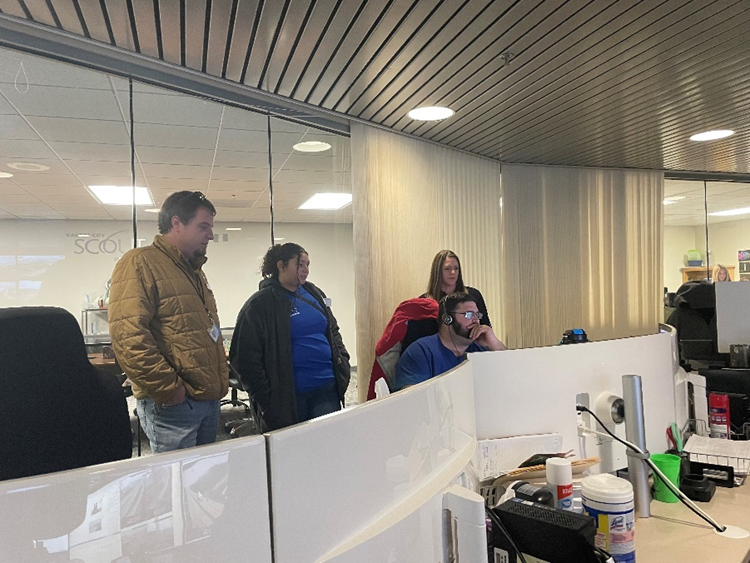Engineering Technician Specialist, Michael Flory visits Washington, D.C. for Research Panel
This past November, Engineering Technician Specialist, Michael Flory, was nominated to be a panelist for the National Cooperative Highway Research Program (NCHRP) in Washington, D.C. to work on a project focused on Managing the Life Cycle of Software for Evolving Traffic Management Systems. During this 30-month commitment, alongside the other panelists, Flory will be attending meetings, reviewing a Request for Proposal (RFP), selecting a consultant to conduct the research, and then finally sharing the final document.
Here is a little background
information on what the program is all about: As agencies progress toward the
next generation of their traffic management systems (TMSs), new software that
adds functions must be implemented within TMSs. A TMS software could be modular
or stand-alone but must be integrated within a software subsystem of TMSs.
These software subsystems could use proprietary, commercial-off-the-shelf
(COTS), open-source, or customized software, or a combination of these types
produced by agency staff and external developers. Agencies will benefit from an
understanding of options and best practices for designing, procuring, and
managing software subsystems to address the current and evolving needs to
traffic management and its TMS.
For this project, a software subsystem
includes software programs that support the functions and services of the TMS
and may share some software products with the entire TMS and specific software
programs installed for other subsystems or decision support tools. Assorted
software programs and application programming interfaces (APIs) may be
integrated into this overall software subsystem to carry out its management and
operating requirements. A software subsystem can include multiple different
software programs (e.g., COTS, proprietary).
Currently, limited resources exist to support identifying requirements and evaluating design options and different technologies (e.g., cloud, server, hybrid cloud, and server) or solutions (e.g., distributed, centrally managed) when contemplating or pursuing the integration or incorporation of new evolving TMS software subsystems, programs, or applications and managing them. Research is needed to provide insights into and understanding of options and best practices for developing and managing requirements as well as planning, designing, procuring, evaluating, and maintaining TMS software subsystems, programs, and APIs.




Comments
Post a Comment